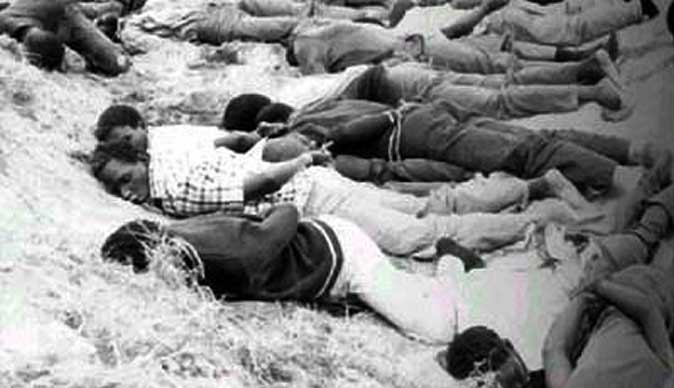Source: Gukurahundi victims need closure, redress – The Standard April 14, 2019
One of the reasons Zimbabwe has struggled to achieve national healing and cohesion is because the previous administration of Robert Mugabe refused to acknowledge the devastating impact of the Gukurahundi atrocities during the early years of independence.
Three decades after the mass killings ended in Matabeleland and Midlands, thousands of victims remain buried in unrecognised mass graves or disused mines throughout the two
provinces.
Some cannot access government programmes or education opportunities because they do not have identity documents after their parents were ruthlessly killed by the Fifth Brigade.
A significant number of people in the two provinces still do not know what happened to their relatives who were seized by the North Korean- trained army for supporting the Joshua Nkomo- led Zapu.
Mugabe and his then government, which included his successor President Emmerson Mnangagwa, suppressed any talk about the atrocities and their impact on communities for the past three decades.
They also refused to discuss compensation or giving access to medical services for victims that still suffer from trauma and other injuries suffered during the pogrom.
Crucially, Zimbabweans still do not know the truth about the deaths and other abuses inflicted on people in Matabeleland and Midlands between 1982 and 1987, where an estimated 20 000 people, mainly civilians, were killed.
The government has refused to release reports by the Dumbutshena and Chihambakwe commissions of inquiry that were set up to investigate the killings.
It was against this background that we cautiously welcomed the announcement by the government last week that it was rolling out a cocktail of measures to address the effects of the mass killings in the two provinces.
These include the issuing of birth certificates and other identity documents to survivors, death certificates to families that lost relatives and medical assistance to victims.
There would be reburials of people whose bodies were thrown into disused mines or were buried in mass graves in places such as Bhalagwe in Matabeleland South.
The government also undertook to stop haranguing citizens that do advocacy around Gukurahundi.
However, critics feel the measures would not achieve much as long as there is no talk about truth-telling and compensation.
There can be no reconciliation without the victims being put at the centre of such processes.
The victims need to guide the government on what they need done for them to find closure.
Perpetrators also have to be given an opportunity to seek forgiveness from victims and disclose what happened to the people that went missing during that period.
It cannot be over-emphasised that compensation and repatriations are key components of any national healing initiatives after violations at the scale of Gukurahundi.

COMMENTS
Vintage Zanu modus operandi. Beat,, rape and murder after they have looted. No change in over 40 years.